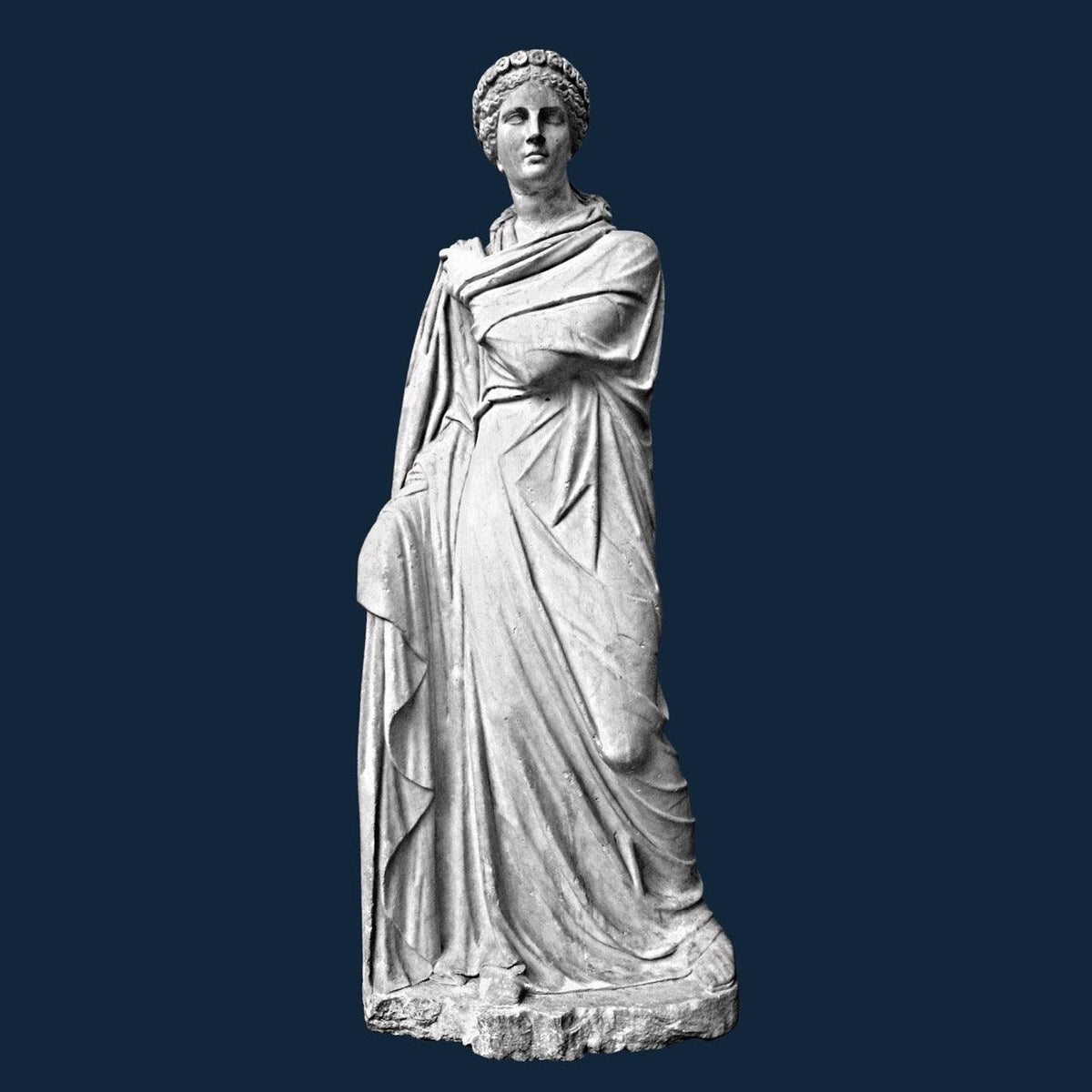Polyhymnia: For the Goddess Muse of Religious Hymns
Jul 03, 22

Polyhymnia: For the Goddess Muse of Religious Hymns
Polyhymnia is a Greek goddess who rules over the art of sacred hymns. She was worshiped as the Muse who inspired poets to write hymns in honour of the gods, especially for the celebration of religious festivals.
Polyhymnia is also known as Graceful Voice because her voice was so sweet that it entranced listeners and made them feel happy. Many writers have recorded their personal experiences with Polyhmsia.
They used to sing praises in front of the goddess by reciting ancient hymnals and singing praises to her with beautiful voices.
These writers believed that they were blessed by Polyhmynia because they could not complete any piece of writing without her help.
Influence of Polyhymnia on Writers
In ancient Greece, Polyhymnia was considered the Muse of religious poetry.
She was the “mechanism” by which the gods received praise and were therefore worshiped. Since Polyhymnia inspired poets, her power was greatly respected. Some writers were even thought to be blessed by Polyhymnia when they started writing.
As a result, many writers were inspired when they were worshiping Polyhymnia as the Muse. Polyhymnia also influenced writers who were writing in other languages.
The tunes used in Polyhymnia-inspired hymns were simple yet beautiful. The language was easy for those who were not fluent in the Greek language. Thus, the hymns were well appreciated by writers of different nationalities.
Origin of Polyhymnia
Polyhymnia was a goddess of religious poetry who was worshiped in ancient Greece. She was the daughter of Zeus and Urania, the Muse of the sky.
Polyhymnia’s name is derived from the Greek word “Poly” meaning “many” and “Hymen” meaning “gift.” Thus, Poly hymnia means “many gifts.”
Polyhymnia had a very special relationship with Apollo, the god of music and light. She shared a mystical connection with him.
Polyhymnia gave Apollo her gift of inspiring people to write hymns. Polyhymnia and Apollo were both worshiped as the gods of poetry.
Mythological connection of Polyhymnia
Polyhymnia was a very special Muse who had a mystical connection with Apollo, the god of music and light. She was his gift of gifts and her gift was inspiring poets to write hymns in honour of the gods. Polyhymnia and Apollo were both worshiped as the gods of poetry. Polyhymnia was worshiped as the Muse who inspired poets to write hymns in honor of the gods, especially for the celebration of religious festivals.
Polyhmynia was also known as Graceful Voice because her voice was so sweet that it entranced listeners and made them feel happy. Many writers have recorded their personal experiences with Polyhmsia.
They used to sing praises in front of the goddess by reciting ancient hymnals and singing praises to her with beautiful voices. These writers believed that they were blessed by Polyhmynia because they could not complete any piece of writing without her help.
Greek hymn
The Greeks were very fond of hymns. Most of their religious celebrations were celebrated with hymns. The Greeks believed that hymns were the gift of Polyhymnia to the gods.
A hymn is a type of religious song that praises a god or a goddess. The Greeks used various meters in hymns such as Iambic, Elegiac, and Alcaic. They also used various types of stanzas such as choriambs and anapaests.
The stanzas were usually three or four lines in length. A hymn usually had a refrain that was repeated at the end of the stanzas.
Traditions in which Polyhymnia is worshiped
Polyhymnia was very popular in ancient Greece. She was worshiped as the Muse who inspired poets to write hymns in honor of the gods, especially for the celebration of religious festivals.
Polyhmynia was also known as Graceful Voice because her voice was so sweet that it entranced listeners and made them feel happy. Many writers have recorded their personal experiences with Polyhmynia.
They used to sing praises in front of the goddess by reciting ancient hymnals and singing praises to her with beautiful voices. These writers believed that they were blessed by Polyhmynia because they could not complete any piece of writing without her help.
Popularity of Polyhymnia
Polyhymnia was a very popular goddess in ancient Greece. Writers used to sing praises in front of her by reciting ancient hymnals and singing praises to her with beautiful voices.
Polyhmynia’s influence on writers enabled them to write hymns in exchange for her gifts of inspiration. Thus, she was very popular among writers. Many writers were even inspired to become poets because they were able to write hymns thanks to Polyhymnia.
Polyhymnia was a very special Muse who had a mystical connection with Apollo, the god of music and light. She shared a mysterious connection with him.
Summary
Polyhymnia was the daughter of Urania and Zeus. She was the Greek goddess of religious poetry and music.
Polyhymnia was also known as Graceful Voice because her voice was so sweet that it entranced listeners and made them feel happy.
Many writers have recorded their personal experiences with Polyhmsia. They used to sing praises in front of the goddess by reciting ancient hymnals and singing praises to her with beautiful voices.
These writers believed that they were blessed by Polyhmynia because they could not complete any piece of writing without her help. Polyhmynia was a very popular goddess in ancient Greece.
Writers used to sing praises in front of her by reciting ancient hymnals and singing praises to her with beautiful voices.





